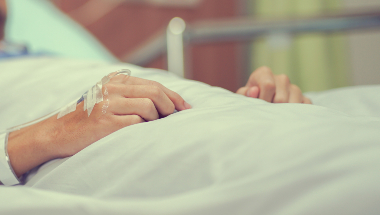New COVID-19 guideline on acute kidney injury
6 May 2020 01:18 PM
NICE has published a new COVID-19 rapid guideline on acute kidney injury (AKI).

The guideline aims to help healthcare professionals who are not kidney specialists to prevent, detect and manage AKI in patients in hospital with suspected or confirmed COVID-19.
It highlights that AKI may be common in patients with COVID-19 and can lead to worse outcomes for patients. Maintaining the optimal level of body fluids is critical to prevent and manage AKI, but this can be hard to achieve.
There is also emerging evidence that suggests the coronavirus might directly harm the kidneys. So, it is important that patients are assessed for AKI on admission to hospital or transfer, monitored for AKI throughout their stay and AKI is managed appropriately if it develops.
If body fluid levels are low and fluid needs cannot be met through drinking or via a feeding tube, patients should be given fluid via an intravenous (IV) drip.
If AKI is worsening, or has not resolved after 48 hours, patients should be referred to a specialist.
In all cases healthcare professionals should discuss the risks, benefits and likely outcomes of treatment options with patients with COVID 19, and their families and carers. This will help them make informed decisions about their treatment goals and wishes, including treatment escalation plans where appropriate. Decision support tools (when available) should be used and discussions and decisions should be clearly documented.
Further guidelines will be announced in due course but are likely to include: the management of patients with interstitial lung disease and chronic kidney disease during the COVID-19 pandemic. NICE will publish new guidelines each based on the priorities for patients and the NHS.
NICE will also make the guidelines internationally available so that health systems around the world can see the approach the UK is taking.
The guidelines are being produced in collaboration with NHS England/Improvement and a cross-specialty clinical group, supported by the specialist societies and Royal Colleges.
Related Resources